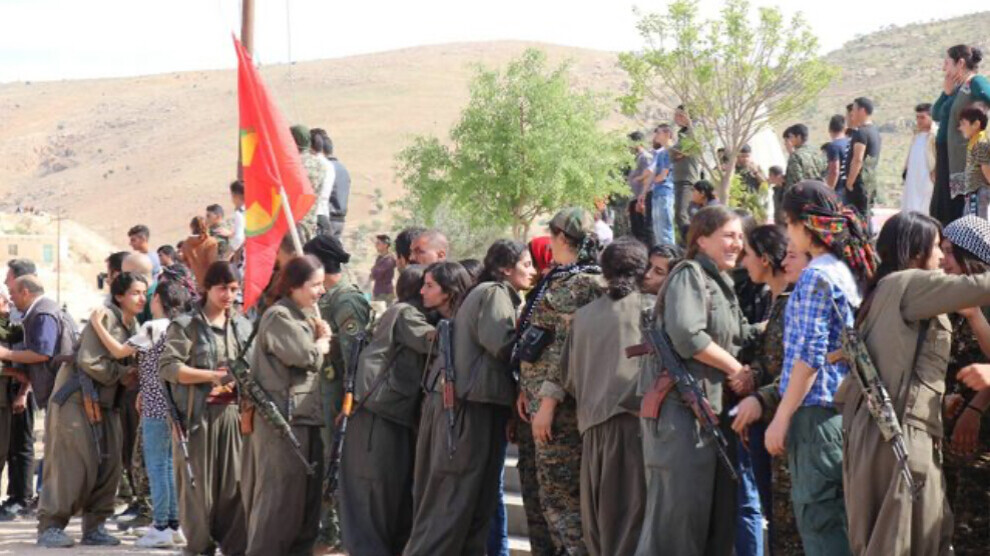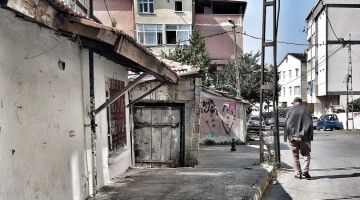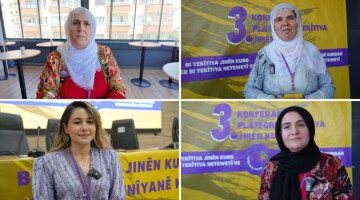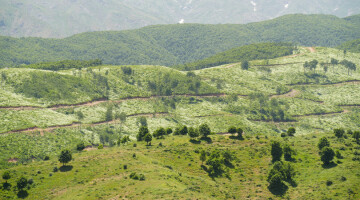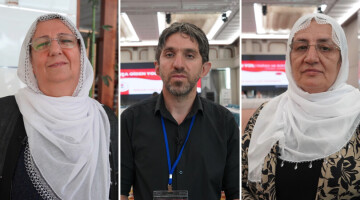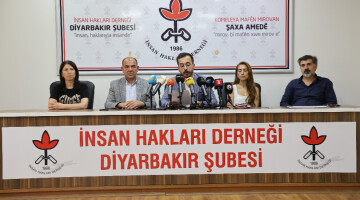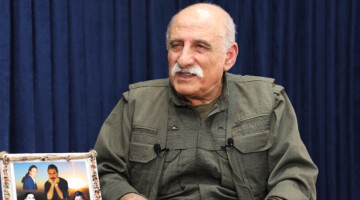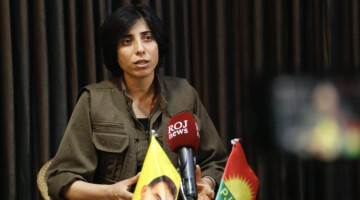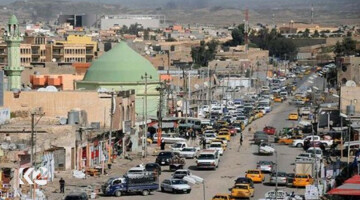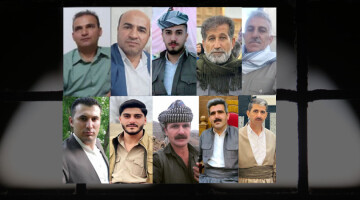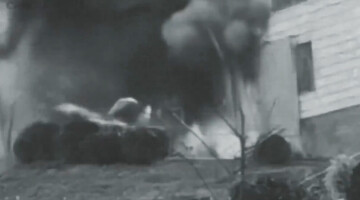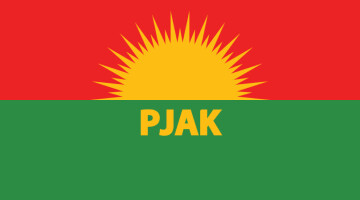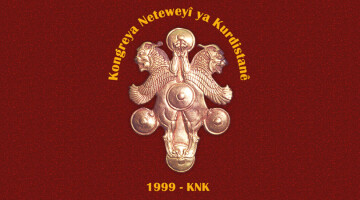ISIS mercenaries carried out a massacre in Shengal on 3 August 2014. This attack was described by the Shengalis as the 74 edict. They refer to it as 'Ferman.'
When the attacks began, the KDP's 12,000 peshmerga members and the 7,000 Iraqi military forces in charge of Shengal left without looking back. A group of guerillas took action to stop the genocide. It was a team of twelve guerrillas.
Cadlin Hisen, a member of the Ezîdxan Women's Freedom Movement (Tevgera Azadiya Jinên Ezîdxanê-TAJE), explains, "12 guerrillas protected Shengal." Hundreds of guerrillas trailed this group, forming a fortification against the Yazidi community.
The KCK declared to the world four years ago that the conditions on 3 August 2014, had vanished, that the Yazidis had become an organized society, that security had been established in Shengal, and that the guerrilla forces would therefore withdraw.
The guerillas fled Shengal and its mountains on April 1, 2018, after making this statement and saying goodbye to the Yazidi people.
Speaking to ANF on the anniversary of the guerrillas' withdrawal, Cadlin Hisên said: "Maybe there would be no Shengal Yazidis today without those guerrillas."
Hisên continued: “The Yazidis in Ezdalık and Shengal survived thanks to the guerrillas. The guerrillas stayed in Shengal for a while after that. They not only liberated Shengal from ISIS, but they also gathered the dispersed Yazidis back in Shengal, creating living conditions, a political, military, and social will that the Yazidis can hang on to, and bringing the Yazidis together. The guerrillas taught us how to protect ourselves and organize ourselves by using our social and religious ties. They are the reasons we exist today. After creating peace in Shengal, the guerrillas withdrew in 2018 and went to the mountains of freedom, seeing what they did for us Yazidis as a duty and ethical responsibility. We missed the guerrillas dearly; it was a privilege to live with them.”
Recalling the days when the edict was given, Cadlin Hisên said: “During the processes leading up to the edicts, everyone or every power that seemed friendly to us revealed their true face. They calculated how to either destroy our identity or become a partner with those who wish to destroy us in order to earn a share of the profits. That is why, throughout history, we Yazidis have been a lonely and vulnerable nation. The 74th Edict was lived in this manner. But something unusual happened this time: we encountered a force on our side, fighting to save us at the cost of its own life. The guerrillas who sacrificed their lives for us did so with no expectation of reward. They will live on in our hearts forever. The guerrillas are from us; they are in the heart of the Yazidi community. We see them as a part of ourselves.”
Stating that the Yazidis owe their current gains to the resistance of the guerrillas, Hisên said: “Leader Ocalan's idea transformed Yazidi civilization and reunited it with its essence. We have become a power in every element of society because of this essence. For example, before the edict, we women were viewed as second-class citizens in this society, but after meeting the soldiers of Serok Apo and learning about Leader Ocalan's views, everything changed for us. We women now administer our own villages and have a say in every decision that affects Shengal's fate. Women had a voice and a life of their own. Women developed the ability to protect themselves. They learned to defend their beliefs above all else. Furthermore, Ezdalik's and Serok Apo's life philosophies are very similar. Leader Ocalan protects every society, belief and culture and gathers them under its own umbrella. That's how he approached us. He did not see us as different from Kurds or other faiths and saw us as others.”
Pointing to the 9 October agreement between Baghdad, Ankara and Hewler, Hisên said that this agreement is a continuation of the edict against Yazidis.
"They're putting pressure on the Yazidis from all sides, and they're trying to destroy our will," Cadlin said, adding: "I want the guerrillas to protect us if we're attacked. Because we know that guerrillas will always protect us and will never abandon us. In any case, we didn't want the guerrillas to leave. We know that no one can protect us but the guerrillas and our own forces.”
Cadlin Hisên pointed out that there is an attempt to displace the Yazidi community. “They have their sights set on Shengal's territory, and they intend to settle there. They can't do it right now because we're stopping them. However, we will never leave our homelands. Whatever the cost, we will not give in."
Cadlin Hisên also reacted to the Iraqi central government, which built a wall across Shengal's borders with Rojava, and said: “Shengal and Rojava established a bond when the edict was released. Rojava also provided us with a great deal of support. Through Rojava, we were able to address our health demands. Rojava's medical services and attitude towards us have always been better. We prefer to go to Rojava most of the time. They have been very supportive of us. There was also a partial trade for our livelihood on the Rojava Shengal line. The majority of patients were able to recover like that. Moreover, all doors were blocked to us during the edict era, with the exception of the entrance to Rojava, which was always open and welcomed us. They're now shutting all of these doors one by one. In addition, we have formed a cooperation with the Arab villages, and we are working together to conserve this area. They're now putting up barriers between us and the Arab villages. They want to encircle and isolate Yazidis from the rest of the world. They want us Yazidis to have only one option in South Kurdistan. We do not accept this. No one has the power to shatter our will.”

